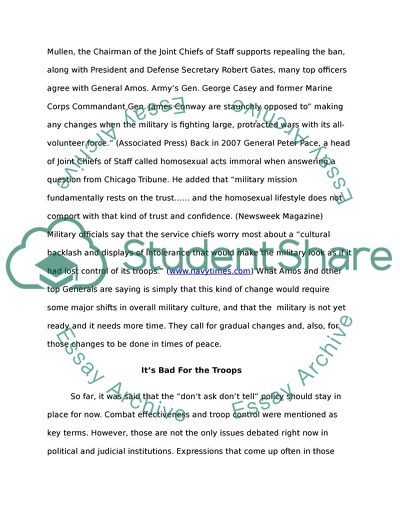Cite this document
(Homosexuality in the US Military Research Paper, n.d.)
Homosexuality in the US Military Research Paper. Retrieved from https://studentshare.org/social-science/1746668-homosexuality-in-the-us-military
Homosexuality in the US Military Research Paper. Retrieved from https://studentshare.org/social-science/1746668-homosexuality-in-the-us-military
(Homosexuality in the US Military Research Paper)
Homosexuality in the US Military Research Paper. https://studentshare.org/social-science/1746668-homosexuality-in-the-us-military.
Homosexuality in the US Military Research Paper. https://studentshare.org/social-science/1746668-homosexuality-in-the-us-military.
“Homosexuality in the US Military Research Paper”, n.d. https://studentshare.org/social-science/1746668-homosexuality-in-the-us-military.


